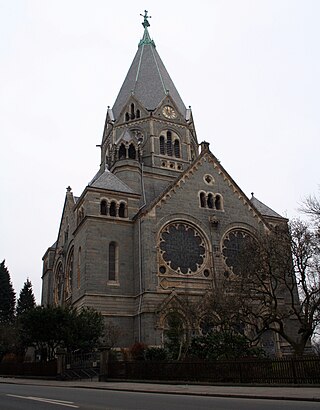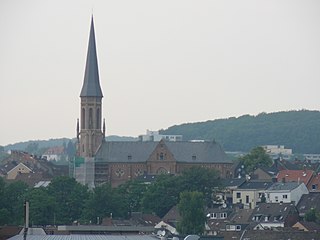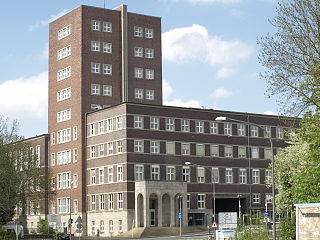Self-guided Sightseeing Tour #11 in Wuppertal, Germany
Legend
Tour Facts
5.3 km
115 m
Experience Wuppertal in Germany in a whole new way with our free self-guided sightseeing tour. This site not only offers you practical information and insider tips, but also a rich variety of activities and sights you shouldn't miss. Whether you love art and culture, want to explore historical sites or simply want to experience the vibrant atmosphere of a lively city - you'll find everything you need for your personal adventure here.
Individual Sights in WuppertalSight 1: Villa Amalia
Villa Amalia is a villa in the Briller Viertel in the Wuppertal district of Elberfeld-West in North Rhine-Westphalia, Germany. The building has been registered as an architectural monument together with the coach house of the villa in the list of monuments of the city of Wuppertal since 1986.
Sight 2: Friedhofskirche

The cemetery church in Elberfeld is one of the largest churches in Wuppertal and the third oldest church built for the Reformed Church in Elberfeld. Important Reformed pastors such as the moderator of the Reformed Federation, Hermann Albert Hesse, and the church historian Hermann Klugkist Hesse officiated at the church. With 1,020 seats, it is the second largest Protestant church in the Rhineland after the Basilica of Constantine in Trier.
Sight 3: Herz Jesu
Herz Jesu, popularly known as Nordstadt-Dom, in Elberfeld's Nordstadt district is the third Catholic church in the district built in the 19th century.
Sight 4: Bandwebermuseum
The Ribbon Weaving Museum is a museum of technical and cultural history in Wuppertal, Germany.
Sight 5: Wiesenwerke
Gold-Zack-Werke AG was a stock corporation from the textile industry, whose shell was converted into an issuing house towards the end of the 20th century. In the second half of the 20th century, Gold-Zack-Werke AG was the market leader in the field of strands, rubber and textile straps, so-called Barmer articles.
Sight 6: Bahnhof Wuppertal-Mirke
The Wuppertal-Mirke train station is a historic train station in Wuppertal. The station building (reception building) was entered in the monument list in 1987.
Sight 7: Engelnberg
The Engelnberg is an approximately 197-metre-high elevation in North Rhine-Westphalia, in the urban area of Wuppertal in the Elberfeld district and is also the namesake for the street Am Engelnberg.
Sight 8: Thomaskirche
St. Thomas' Church is a Protestant church in the Elberfeld district of Wuppertal, Germany.
Sight 9: Lego-Brücke
The Lego-Brücke is a concrete beam bridge which crosses over the Schwesterstraße in the North Rhine-Westphalian city of Wuppertal, Germany. In 2011, graffiti and street artist Martin Heuwold repainted the bridge in the style of Lego bricks, receiving national and international media attention for his work. The work was awarded the Deutscher Fassadenpreis in 2012.
Sight 10: Johnson Controls IFM Industrie GmbH
The consumer cooperative "Vorwärts-Befreiung" was a large consumer cooperative in Wuppertal. It emerged from the merger of the cooperatives "Befreiung" and "Vorwärts" as well as "Haushalt" in Velbert in 1924. Previously, several attempts to unite the Elberfeld and Barmer cooperatives had failed.
Share
How likely are you to recommend us?
Disclaimer Please be aware of your surroundings and do not enter private property. We are not liable for any damages that occur during the tours.
GPX-Download For navigation apps and GPS devices you can download the tour as a GPX file.







